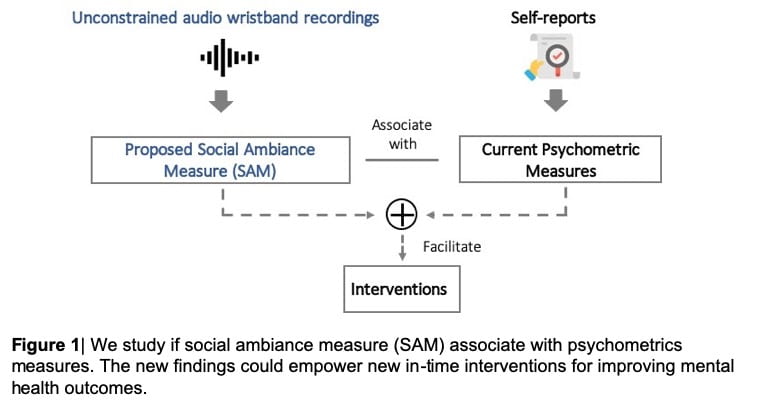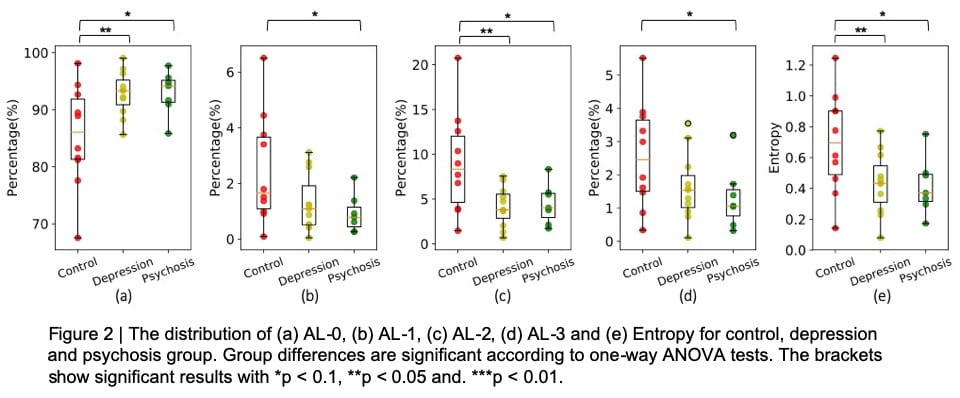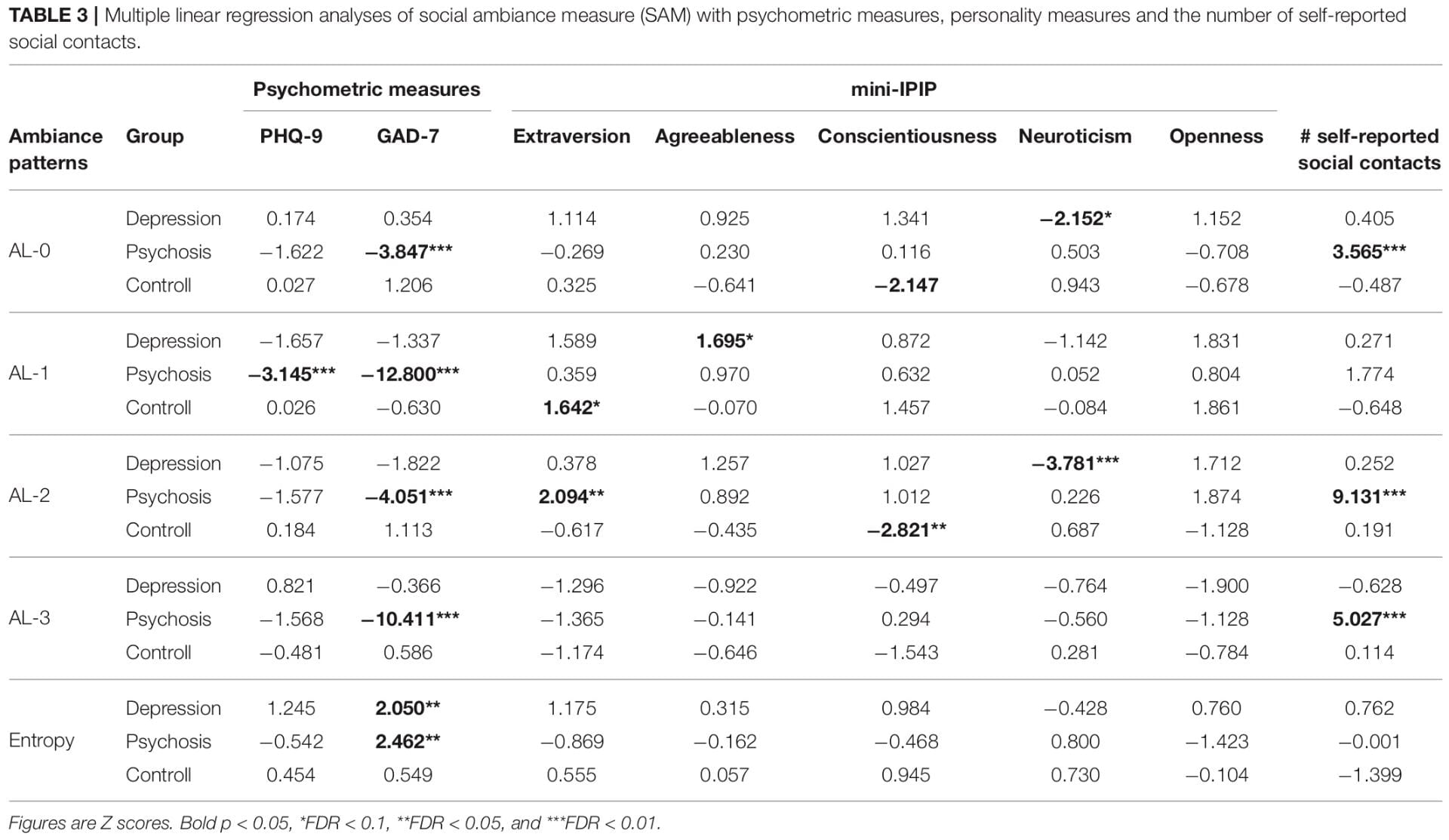Privacy-preserving Social Ambiance Assessment

The Problem:
A social interaction consists of contributions by the individual, the environment and the interaction between the two. Ideally, to enable effective assessment and interventions for social isolation, an issue inherent to depressive and psychotic illnesses, the isolation must be identified in real-time and at an individual level. However, research addressing sociability deficits lacks focus on the richness of the social environment the individual revolves in.
Our Solution:
To address the above challenges, we establish the feasibility of measuring social ambiance objectively, and test the hypothesis that objectively measured social ambiance can be used as a marker of sociability. Specifically, we propose a privacy-preserving social ambiance measure (SAM), derived from wearable sensors that collect unconstrained audio recordings. We use the number of concurrent speakers as a proxy for social ambiance since speech overlaps are prevalent in most social scenarios and create a type of sound texture that represents the atmosphere created by people nearby. To evaluate the relationship between social ambiance patterns and mental health, we conduct a pilot study to compare individuals with chronic depression, chronic psychotic disorders vs. healthy controls.


Results:
- Social Ambiance Measure (SAM) Differences Between Groups
Figure 2 illustrates that social ambiance patterns extracted from participants with depressive or psychotic disorders were significantly different from healthy controls.
Relationship Between Social Ambiance Measure (SAM) and Self-Reported Measures
Social ambiance patterns, while linked to some personality traits for healthy controls, were found associated with psychometric scores for participants with depressive or psychotic disorders.
Team

Wenwan Chen
Graduate Student, ECE
Rice University

Dr. Ashutosh Sabharwal
Professor
ECE, Rice University

Dr. Ankit PATEL
Assistant Professor
ECE, Rice University

Dr. Erica Taylor
Medical Resident
Baylor College of Medicine

Dr. Nidal Moukaddam
Assistant Professor
Baylor College of Medicine
